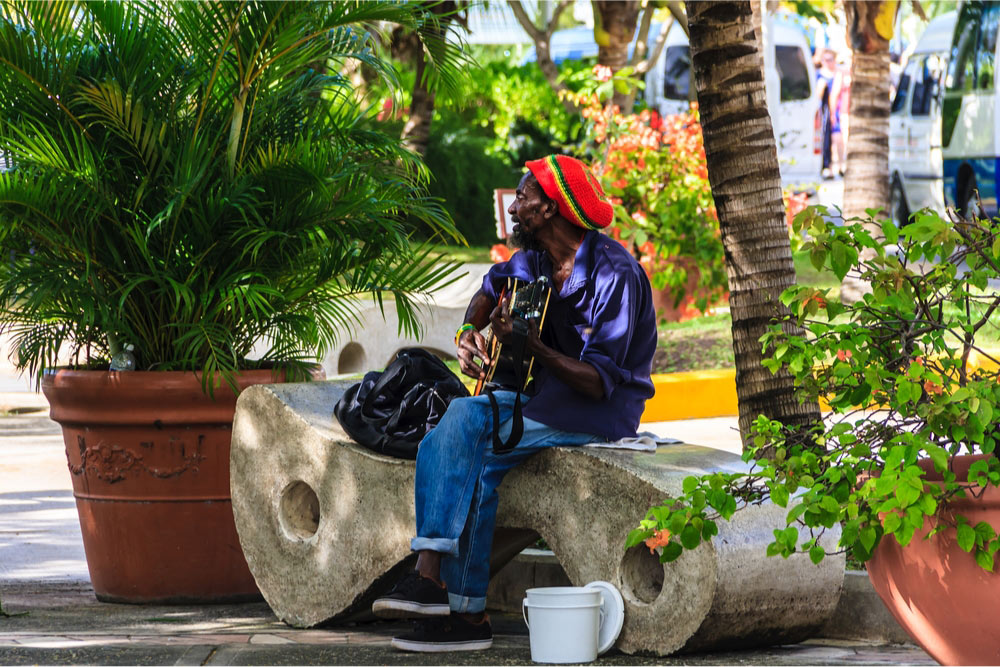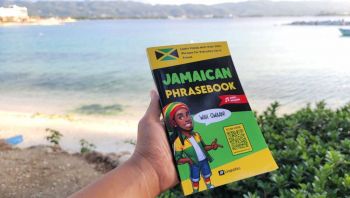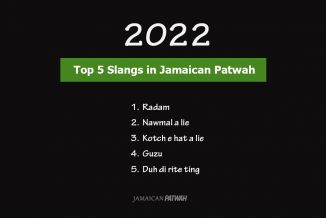When asking about the Jamaican Language, many persons are referring to Jamaican Patios, an English-lexified creole language spoken by the majority of Jamaicans locally or internationally.
What is Jamaican Patois?
Jamaican Patois (or Creole) is a combination of an English based Creole language and West African based languages. Jamaican Creole came into existence as a medium for the slaves and their masters to communicate. The dialect was developed during the seventeenth century to facilitate the ‘seasoning method’, which was the process by which slaves were forced to discard their cultural identity including their mother tongue hence, Jamaican Patois was developed as the main form of communication on the slave plantation. Jamaican Patois is unique to the Island of Jamaica. However, it is spoken in the Jamaican Diaspora as well which include Miami, New York, Nottingham Birmingham and London.
Difference between Jamaican Patois and Jamaican English
Jamaican Patois is not to be confused with Jamaican Standard English as there are several features which differentiate Jamaican Patois from Jamaican Standard English. Jamaican Patois is widely spoken in Jamaica and as such, over ninety percent of the population speaks Jamaican Patois though it is not the official language. On the contrary, Jamaican Standard English is the official language of Jamaica; nevertheless Standard Jamaican English is not spoken as widely as Jamaican Creole. In addition, Standard Jamaican English has written and a spoken form, while Jamaican Patois is mostly spoken. Several persons have made claim that Jamaican Patois does not have a standardized writing system.
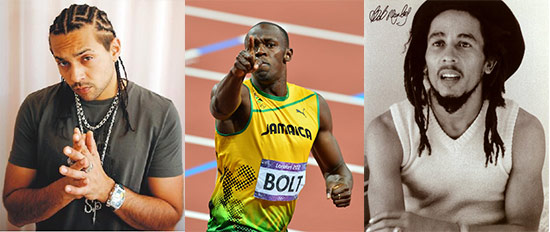 Popular Jamaican Celebrities that speak Jamaican Patois
Popular Jamaican Celebrities that speak Jamaican Patois However, Frederick Cassidy developed a writing system for Jamaican Patois although there are different variations of the language. For instance, Jamaican Patois spoken in Kingston may be slightly different from that which is spoken in rural St. Elizabeth. Therefore while a person in Kingston would say “Mi wen a go a town.” while a person in rural St. Elizabeth would say “mi beh weh deh goes a town” Though the expressions are different, they convey similar meaning. Despite the variations, Most Reggae and Dancehall music are composed in Jamaican Creole rather than Standard Jamaican English.
Jamaica Patois vs. Jamaican Slang
Jamaican slangs are expressions which are normally spoken in Jamaican Patois. Unlike Jamaican Creole, Jamaican slang changes on a regularly basis. As new words are created, others words become redundant. Current Jamaican slangs include ‘deadings, shellings slap weh’ On the other hand; the Jamaican Patois words are continuously a part of the Jamaican Patois vocabulary. Despite the negative views toward Jamaican Creole, it is popular and tourists enjoy the language as a result of the humorous tone associated with the language. Jamaican Patois is also popular as a result of the work of the late Louise Bennett Coverley. She wrote several collections of poems in Jamaican Patois and was proud of the language even though many people shunned Jamaican Creole during that period.
Does everyone in Jamaica speak patois?
Louise Bennett Coverley was proud of the Jamaican Patois language. Consequently Bennett Coverley contributed to the popularity of the Jamaica Patois on an international level. Jamaican Patois is given more respect since several persons have advocated for Jamaican Creole to be taught in schools. Nonetheless, students are not allowed to use Jamaican Patois in the classroom at the secondary and tertiary level. Thus, it is fair to assume that almost all Jamaicans are exposed to Jamaican Creole conversely not all Jamaican speak Patois especially those who are from the upper social class. Non- Jamaicans tend to show more respect for the dialect as a language than Jamaicans do. In addition, Reggae and dancehall music also contribute to the popularity of the Jamaican Patois, being that Jamaican music is popular in countries such as Japan and Germany.
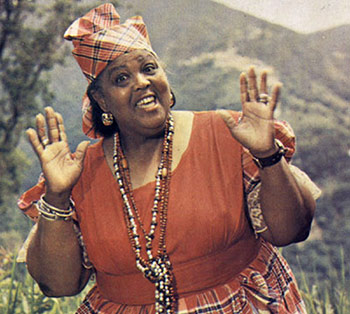 Dr. The Hon. Louise Bennett Coverley – Proud advocate for Jamaican Creole
Dr. The Hon. Louise Bennett Coverley – Proud advocate for Jamaican Creole Overtime the attitude towards Jamaican Patois has changed seeing that linguists such as Professor Hubert Devonish has categorized Jamaican Patois as a language and not just a mere dialect. Teachers have observed that the use of Jamaican Creole in the classroom help students to understand much easier than using Jamaican English to clarify.

